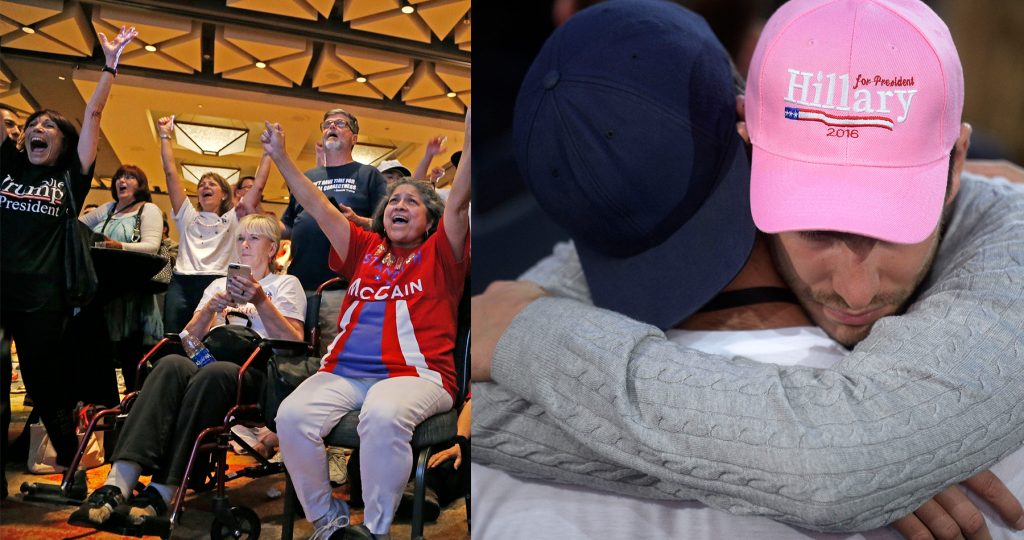|
Clear |
The way Clinton talked about the economy just didn’t hit home for people the way that Trump’s tone did. She might not have used much jargon, but we still think she could have communicated her economic ideas in a clearer, more direct, more tangible way. |
Good and bad. Yes, he used very little jargon, and made statements in simple language. But what was being said was often very contradictory if you dug a little deeper. So plus points on one front, but major minus points on the other. |
|
Real |
This is a difficult one to call, and where Clinton’s performance was potentially the most unconvincing. She tried to talk in terms that related to people’s day to day, but so many people view her as part of a political ‘establishment’ that it seems they just didn’t trust or believe she really understood. |
Trump nailed it. Without a hint of abstract policy wonk talk, he spoke directly to people’s daily lives, in a way ‘the establishment’ simply hasn’t managed to do. |
|
Transparent |
Clinton communicated many values during her campaign which we applaud. She is, however, part of an establishment that huge numbers of people have lost faith in. So no matter how hard she tried to be transparent about the values behind her economic policies, people quite simply seem to have a difficult time trusting her. This will surely be for Clinton's campaign to digest and learn from as time goes on. |
In one sense, he nailed this too. Trump ‘tells it like it is’, and has no shame about the values behind his economic ideas. He’s openly nationalist, openly derogatory about women, openly divisive about race – and people either liked it, or they didn’t.
But what Trump wasn’t transparent about was the economic theory behind his ideas – largely because the majority of economists didn’t think there was any. And he jumped around so much on his opinion that it’s difficult to really know what he’s going to do now he’s in power. |
|
Diverse |
Clinton’s campaign put huge amounts of emphasis on speaking to and improving the economic lives of minorities in a way we’d definitely support. We still think that she could have done more to engage with diverse economic ideas – calling Trump voters ‘deplorables’, for example, wasn’t the best idea |
Trump’s campaign seriously disrespected the fact that people’s identities – from race, to gender, to sexuality – lead them to experience the economy differently. He refused to engage in debate over economic ideas with those who disagree with him, and He consistently made divisive comments that do not lead to a discussion of economics that considers everyone., For this we criticize his campaign. |
|
Available |
Clinton’s economic ideas were available to the minutest detail – but as we’ve mentioned, not in a language that related to people’s day to day. For whatever reason it didn’t end up reaching the voters. And press coverage of the election was so busy covering sensationalist scandals that there was next to no real discussion of policies. |
Trump’s ideas were all over the press pretty much every day in the runup to election day. But he didn’t actually release his economic policy ideas until pretty late into the race. So although we heard from him all the time, the important stuff wasn’t as available as it could have been. |




